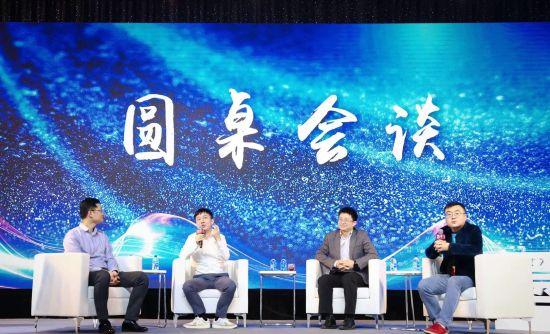
In the scientific community, some people jokingly call the Nobel Prize the "Explosives Award", which stems from Nobel's own contribution to explosives on the one hand, and on the other hand, reflects the significance of the award's achievements and the heated discussion of it in the scientific community.
For ordinary people, when it comes to the Nobel Prize, most people can't understand the depth of science in addition to looking at the hilarity in the circle of friends. In fact, the lives of each of us are undergoing profound changes because of these achievements.
A few days ago, Professor Zhao Chun and Professor Kang Yanbiao from the University of Science and Technology of China and Professor Tang Yiquan from Fudan University came to the Mozi Salon to use their respective professional visions to take the audience to appreciate how this year's Nobel Prize achievements promote the progress of civilization and what inspirations the Nobel Prize story brings. The event was presided over by Professor Cai Yifu of the University of Science and Technology of China, an old friend of Mozi Salon.
The Earth's climate system is a complex system, and the atmosphere, the hydrosphere, the lithosphere, and the biosphere are all in this system, and they will eventually affect the Earth's climate. In the rainforest of the Amazon, the butterfly flaps its wings a little, and it may rain a little over our Beijing. The butterfly effect colloquially describes the complexity of this system.
"Although chaotic effects do exist on a microscopic scale, when we consider large-scale issues such as global climate change, the uncertainties generated by chaotic effects can be ignored as noise fluctuations, leading to definitive conclusions." As a result, we can not only predict the macro-behavior of the global large-scale climate system, but also assess how human activities are affecting global climate change. Teacher Zhao Chun gave his understanding of the Nobel Prize.
In fact, the Nobel Prize's attention to climate and environment is not the first time, the formation and decomposition of ozone, the impact of climate on economics, have been "favored" by the Nobel Prize, it can be seen that the relationship between people and the environment has always been an important topic of human civilization and development. The "double carbon" strategy that China is vigorously implementing now also reflects China's responsibility for the fate of mankind as a big country. In The view of Professor Zhao Chun, with scientific prediction methods is not enough, from national strategies to daily life, how we deal with climate change and whether we can turn climate concerns into our practical actions is the ultimate meaning of these studies.
This year, German scientist Benjamin List and American scientist David MacMillan won the Nobel Prize in Chemistry for developing a new and original molecular construction tool, asymmetric organic catalysis.
In Professor Kang Yanbiao's view, when we talk about organic catalysis today, in addition to paying tribute to the two scientists who have won this award, we should not forget other scientists from various countries who have done pioneering work in this field. For example, the Hungarian scientist Z. G. Hajos, once in 1970, reported the first case of asymmetric hydroxyaldehyde condensation reaction in his patent, "For basic research, we should not forget that the first people, even great people like Newton, are standing on the shoulders of giants." ”
Many people are fans of Sichuan cuisine, in fact, the reason for the fascination with spicy taste is the pain caused by the fascination with chili peppers, and this year's Nobel Prize in Physiology or Medicine is related to the pain caused by chili peppers.
The 2021 Nobel Prize in Physiology or Medicine was awarded to David Julius and Ardem Patapoutian for their contributions to "discovering temperature and tactile receptors." In it, David Julius uses capsaicin to identify receptors on the nerve endings of the skin that respond to heat. Ardem Patapoutian used pressure-sensitive cells to discover a novel receptor that responds to mechanical stimuli in the skin and internal organs.
Professor Tang Yiquan said that the echo of traveling through time and space may be the charm of science. For example, the concept of proprioceception was first proposed by Sir Charles Scott Sherrington, winner of the 1932 Nobel Prize in Physiology or Medicine, in his classic neuroscience monograph The Integrative Action of the Nervous System (1906).
In the final roundtable session, the host and the three guests interacted with the audience on the results of the Nobel Prize. (End)
Editor: Yingying Zheng